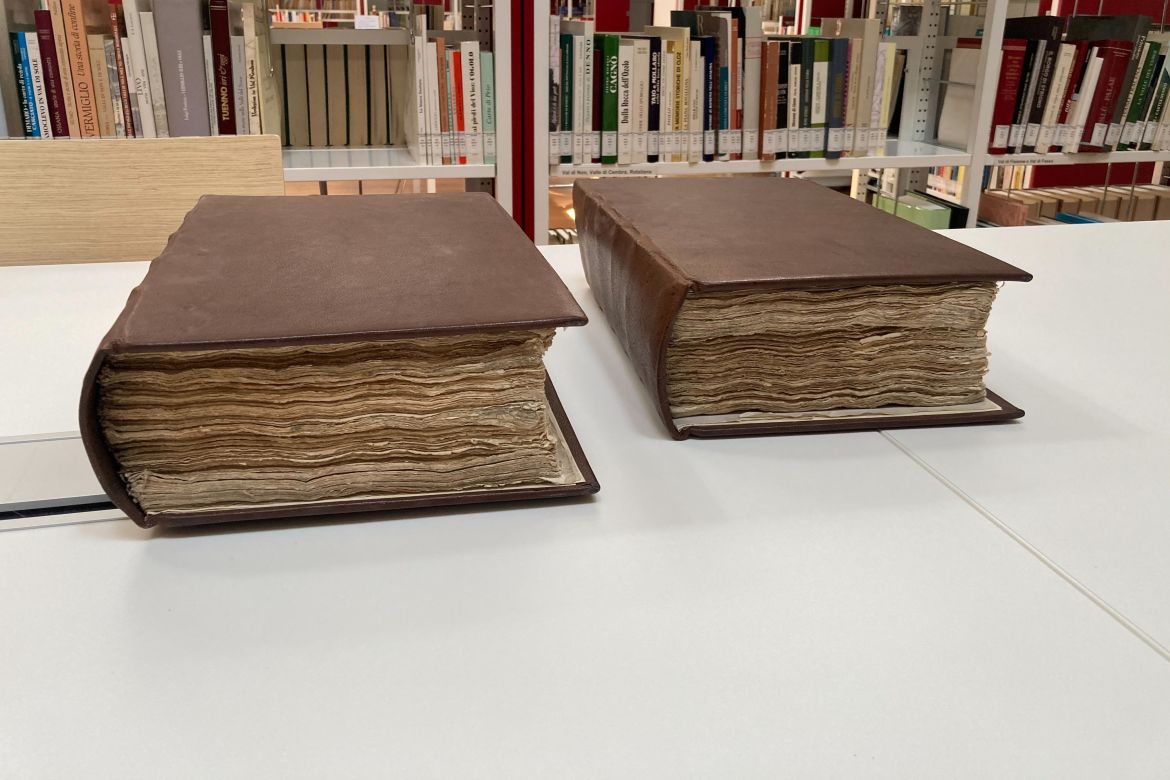The Venetian heterodox émigré, Gian Michele Bruto (in Latin: Johannes Michael Brutus, 1517-1592) worked on his monumental Hungarian history as court-historian of István Báthory first in Gyulafehérvár from 1574 and then in Krakow from 1576. The aim of Rerum Ungaricarum libri, a continuation of Bonfini’s Decades, was to present the century of Hungarian decline in a single comprehensive narrative – from the death of King Matthias through the loss of Buda and Szigetvár to the election of István Báthory as Prince of Transylvania – and to legitimize the rule of the Szapolyai dynasty in the east of the country. The work was completed but never printed, and only fragmentary manuscripts were available for the 19th century academic edition.
In July 2020, two researchers from Szeged, Péter Kasza and Gábor Petneházi, discovered an almost completely intact, 2,000-page autograph manuscript of Brutus’s work in Trento, Italy, which fundamentally changed everything that was known about the work and Brutus’s role as a historian. The discovery of this sensational manuscript has shed light on the necessity of further investigation in the field of humanist historiography in general, and the two experts will therefore continue their research at the Institute of History of the ELKH Research Centre for the Humanities from March this year. In addition to working on Brutus, their task will be to prepare and coordinate the publication of historical works from the 16th and 17th centuries that have been forgotten and remain in manuscript and/or which have not been published in a critical edition and deal with the history of Hungary from a new perspective, whilst obtaining additional funding.
 Gábor Petneházi and Péter Kasza
Gábor Petneházi and Péter Kasza
The Trento find is of outstanding importance: not only does the manuscript contain the author’s autograph corrections – presenting unique information about Brutus’s writing methods and technique – but it also bears the annotations of its later users. These provide important information on the political and intellectual elites who played an important role in the creation of historical works and decided on the policy for making manuscripts public. With the significant support of the Embassy of Hungary in Rome, the Diocesan Library of Trento agreed to digitize the manuscript and send the two manuscript volumes, which are of priceless scientific value, to Hungary for a few months for exhibition purposes.
An exhibition presenting the manuscript tradition of humanist historiography in Hungary is being organized with the participation of the institutions concerned.
elkh.org
 Gábor Petneházi and Péter Kasza
Gábor Petneházi and Péter Kasza


